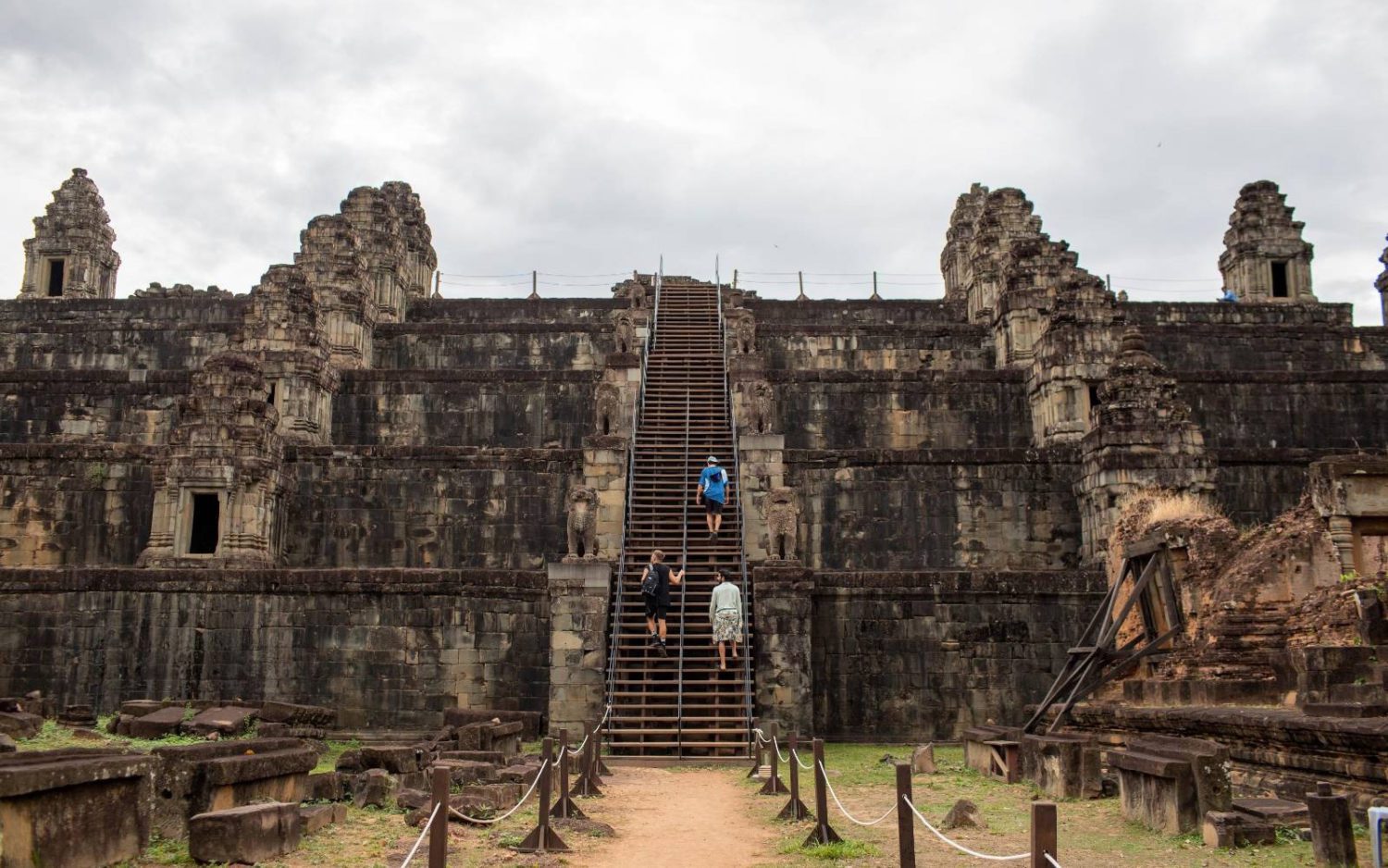Roofs, kitchens, shacks and other extensions built unapproved on houses in the wider Angkor Archaeological Park area will need to be removed, Apsara Authority has told residents, some of whom believe they only have two days left to finish the removals.
About 300 people who live 3-4 km from Angkor Wat are affected by Apsara Authority’s warning, according to rights group Adhoc’s land dispute officer Sous Narin, who suggested the residents were far enough from the temples that strict measures should be unnecessary.
Ong Chanly, a 52-year-old resident who sells firewood, said she had initially been given a deadline of July 14 to remove some small structures on her land. But the day had passed with no action, and now Angkor guards had suggested that officials will come on Wednesday to remove the unapproved constructions, which included accommodations for her children, Chanly said.
“I didn’t build on the roadside, only on my own land,” Chanly said, adding that she had a soft title for the land since 2015.
Kong Channy, 42, said she was notified on June 27 to remove a 3-meter extension on her house that contained a kitchen. But she was negotiating with authorities to keep it, she said.
Apsara Authority spokesman Long Kosal said about 60% of residents had already agreed to the plan to remove unapproved constructions, and about 20% had not agreed. He said he was not sure about the remaining 20%.
“We’re coordinating with the local authorities to remove the constructions. It’s not about the main buildings, just small stalls that don’t have permission,” Kosal said.
He said unstructured constructions would impact the temple environment unless authorities took action, but he would not say whether there was a deadline for residents to voluntarily remove the structures after which authorities would take forcible action.
“It impacts the resort environment. We need to prevent it. If it is not stopped, it will extend more and more,” he said.













